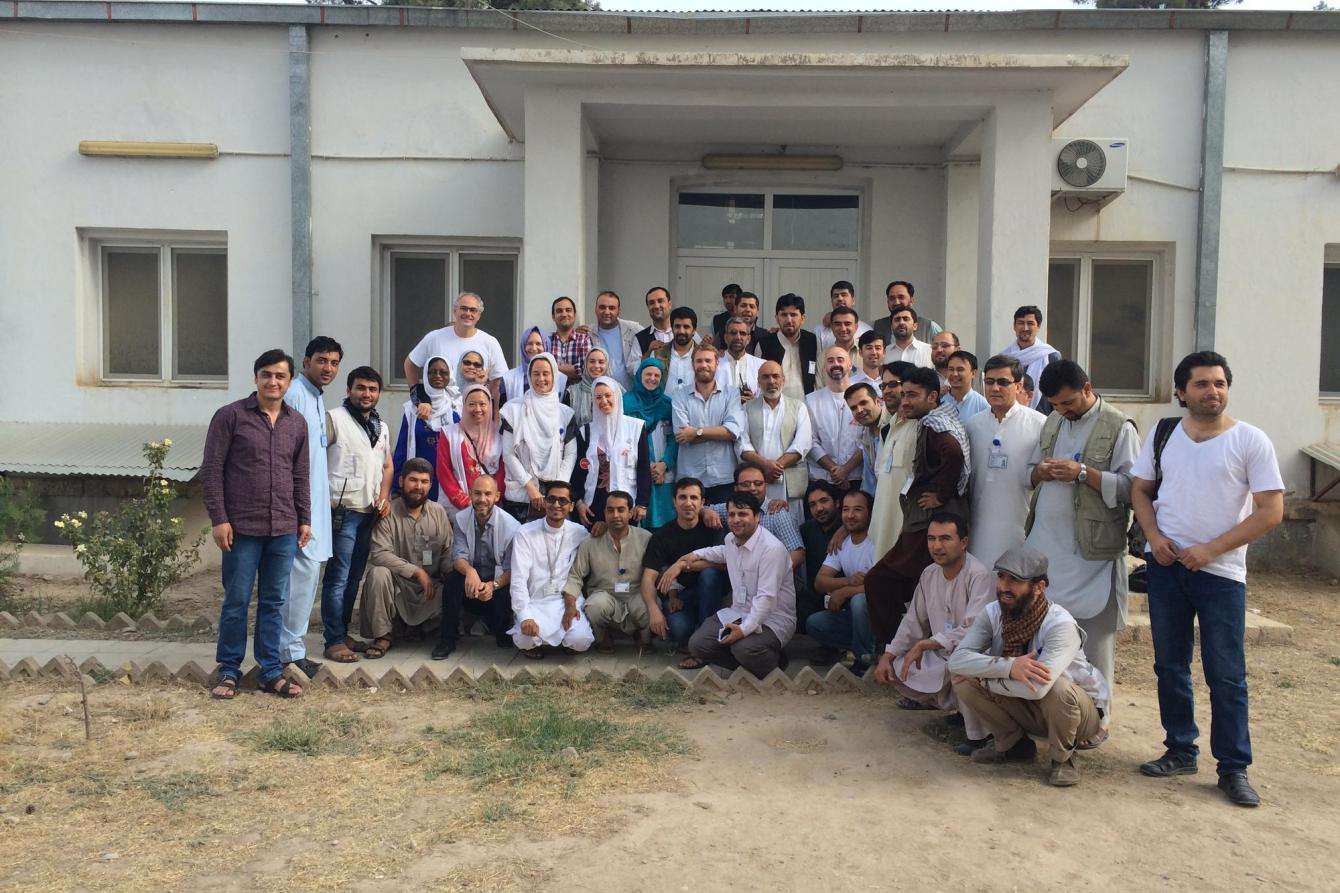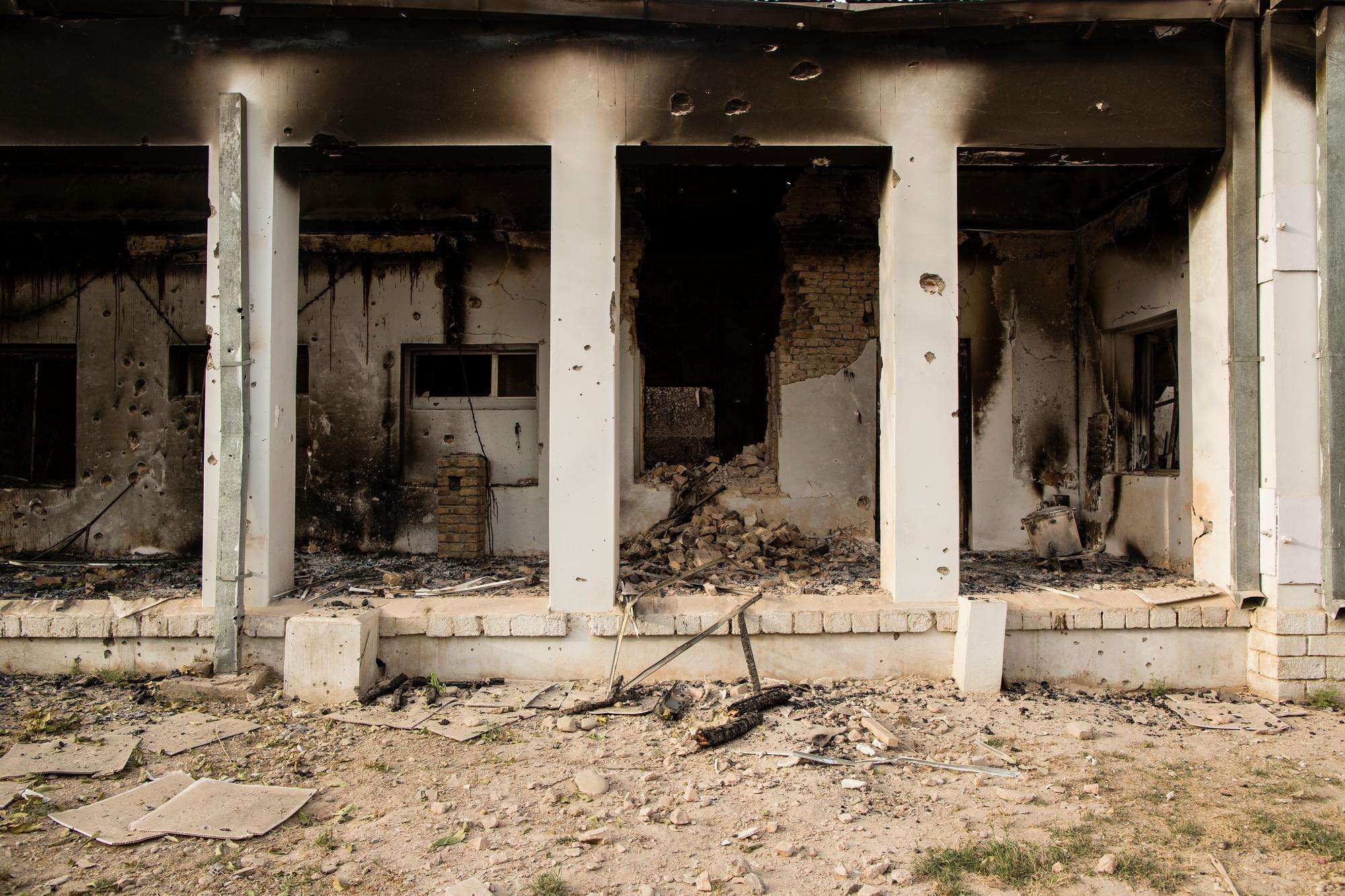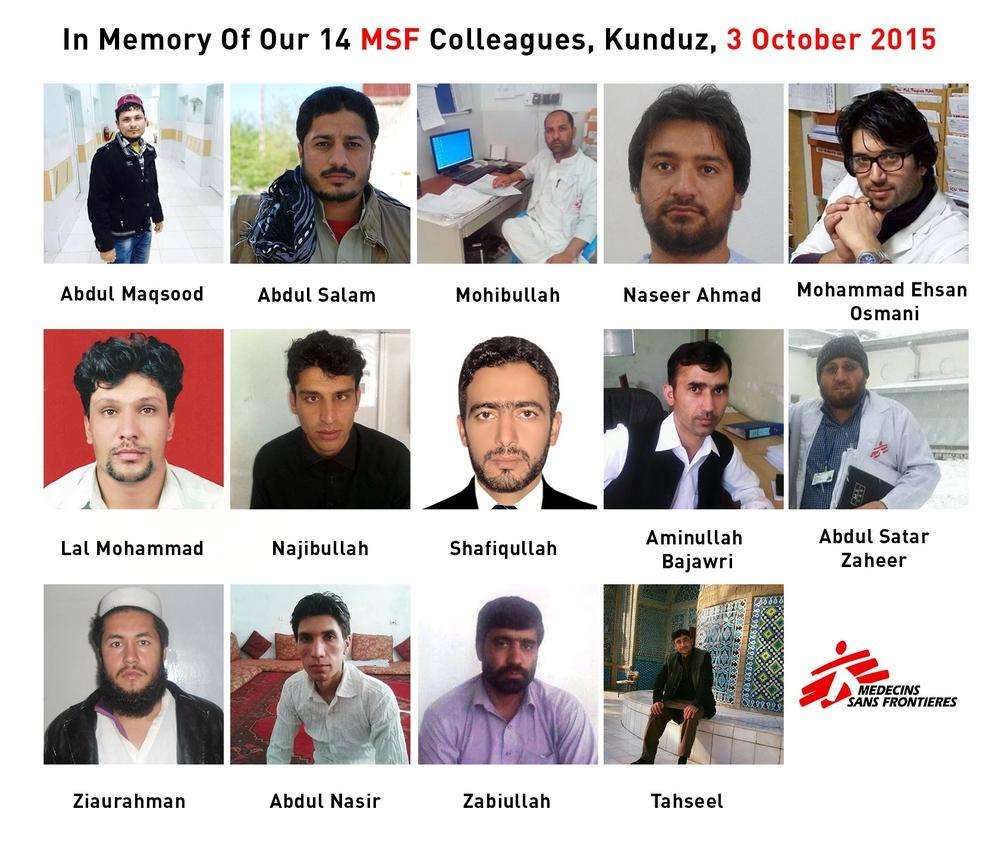Six years ago, on October 3, repeated US airstrikes destroyed the trauma hospital run by Doctors Without Borders/Médecins Sans Frontières (MSF) in Kunduz, Afghanistan. Forty-two people were killed in the attack, including patients, caretakers, and MSF staff members. Even as the attack continued, our colleagues fought for their lives and for the lives of their patients with extraordinary determination and courage.
This year, despite heavy fighting and political upheaval, MSF reopened a new trauma center in Kunduz to meet the still urgent needs.
The trauma center was first opened in August 2011 and was the only facility of its kind in the region, providing free lifesaving medical care to tens of thousands of people. In 2014, more than 22,000 patients received care at the hospital, and more than 5,900 surgeries were performed. By 2015, medics at the facility had treated more than 68,000 emergency patients and performed more than 15,000 surgeries.
In July 2017, MSF reopened a small medical clinic in Kunduz, the first facility in the area since the attack. The outpatient clinic provided consultations for people with wounds caused by minor burns or trauma, previous surgery, or diseases such as diabetes that cause chronic skin lesions.
We had to suspend activities in the clinic in 2020 due to the COVID-19 pandemic. Work on a new trauma center in Kunduz started in late 2018 but was delayed due to security issues and the ongoing pandemic.

In summer of 2021, during intense clashes between the Islamic Emirate of Afghanistan (also known as the Taliban) and Afghan government forces, MSF transformed its Kunduz office space into a temporary trauma unit to care for wounded people. On August 16, 2021, these patients were transferred to the new, nearly finished Kunduz Trauma Center.
This new facility is filling an urgent need. Though the fighting that gripped the region has largely subsided, people in Kunduz still face massive barriers to accessing lifesaving health care. The regional health system in Kunduz is strained as experienced medical staff leave the province, including senior health administration officials. Medical and logistical supplies are still scarce, and the main regional referral hospital continues to rely on donations from the few humanitarian actors that retain some presence in the country.

When it’s fully operational, the facility will employ 300 Afghans, including staff members who survived the 2015 attack. Since its initial opening, 153 patients have already been treated in the trauma center, most of them injured in road traffic accidents or suffering medical complications after being injured in the fighting.





